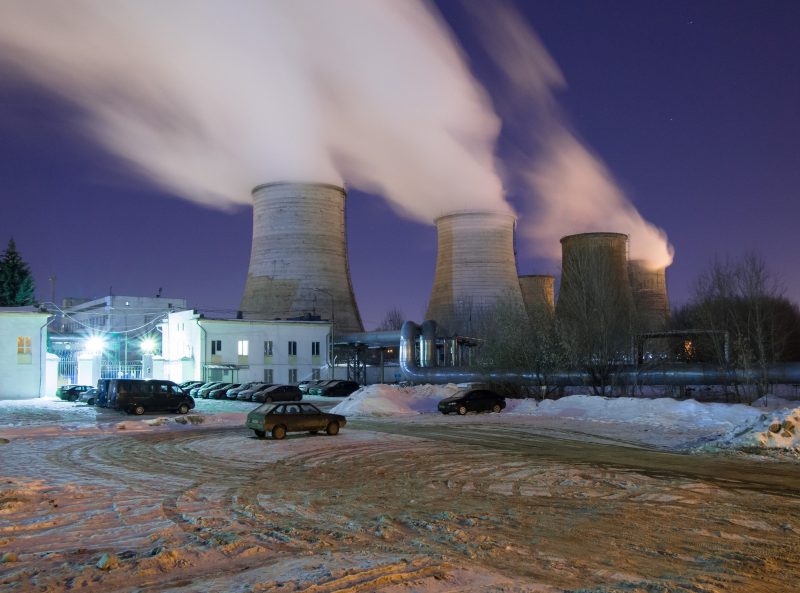The nuclear energy It is one that is generated by the radioactive decomposition of some elements such as uranium and plutonium. Nuclear reactions spontaneously release this type of energy, but it is also possible to artificially generate the conditions for it to be generated. For instance: nuclear power plants, the atomic bomb, the atomic pile.
It is common to refer to nuclear energy not only as the result of a reaction, but as the concept that includes the knowledge and techniques that make this type of energy useful for humans.
Nuclear power generation
There are two methods for the production of nuclear energy, through the release of the energy present in the nucleus of the atom:
- Nuclear fusion. It is one where energy is released because atoms combine with each other to form a larger atom. The nucleus of the new atom is heavier, and has a mass slightly less than the sum of the masses of the initial nuclei. For this process to take place, the positively charged nuclei must approach overcoming the electrostatic forces of repulsion.
- Nuclear fision. For its part, it is one where the atoms separate to form smaller atoms, releasing energy in this process. The heavy nucleus is bombarded by neutrons and then becomes unstable, decomposing into two nuclei whose masses are of the same order of magnitude, and whose sum is slightly less than the mass of the heavy nucleus. In a very small fraction of time, the fissioned nuclei release an energy one million times greater than that obtained, for example, in the combustion reaction of a fossil.
Currently the energy generation It is carried out by fission, since for a fusion reaction to be generated, very high energies are needed that allow the nuclei to approach each other at very short distances in such a way that the nuclear attractive force exceeds the repulsion forces electrostatic and the nuclei remain together.
Uses and applications of nuclear energy
Most of nuclear energy is used to create electricity: in some European countries such as France, a large part of the energy used is nuclear. However, there are alternative uses such as propelling ships and submarines in war situations, which is not widespread either and still occupies a small place in the war industry.
Advantages and disadvantages of nuclear energy
- Advantage. It makes it possible to reduce the use of fossil fuels (and along with it, reduce the emission of polluting gases), and the enormous potential for generating electricity that nuclear power plants have, which are operating almost all of the time.
- Disadvantages. The enormous risks of a misuse of nuclear energy appear, as were the experiences of Chernobyl or Fukushima. The use of nuclear energy in the military industry also generates great uncertainty and danger in some contexts of geopolitical conflicts.
Examples of nuclear energy

- Nuclear power plants.
- Nuclear powered ships and submarines.
- The atomic pile.
- The Hadron Collider, a particle accelerator used in Europe for nuclear research.
- Nuclear-powered military aircraft.
- Nuclear cars.
- The atomic bomb.
Other types of energy
| Potential energy | Mechanical energy | Kinetic energy |
| Hydroelectric power | Internal energy | Sound Energy |
| Electric power | Thermal energy | hydraulic energy |
| Chemical energy | Solar energy | Caloric energy |
| Wind power | Nuclear energy | Geothermal energy |
